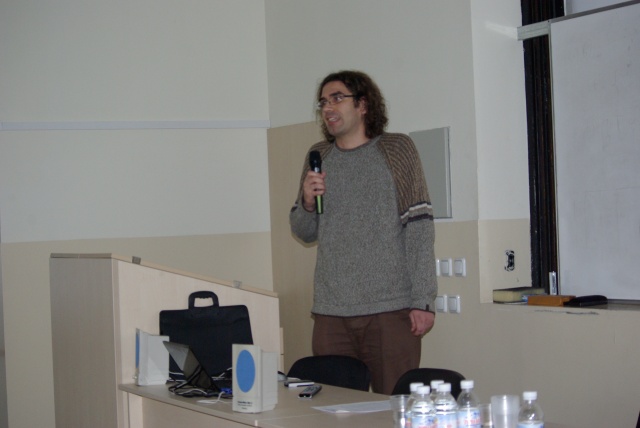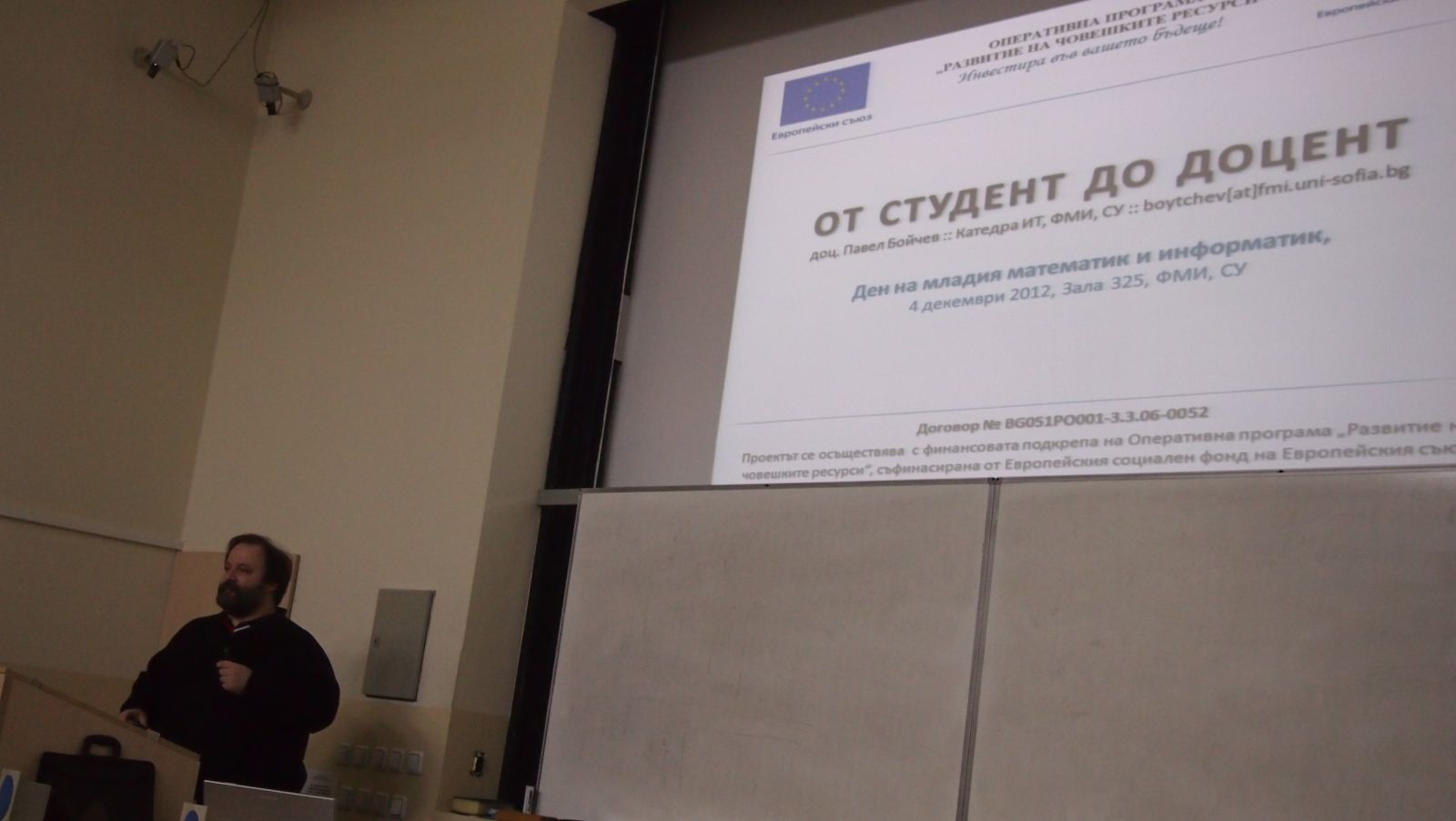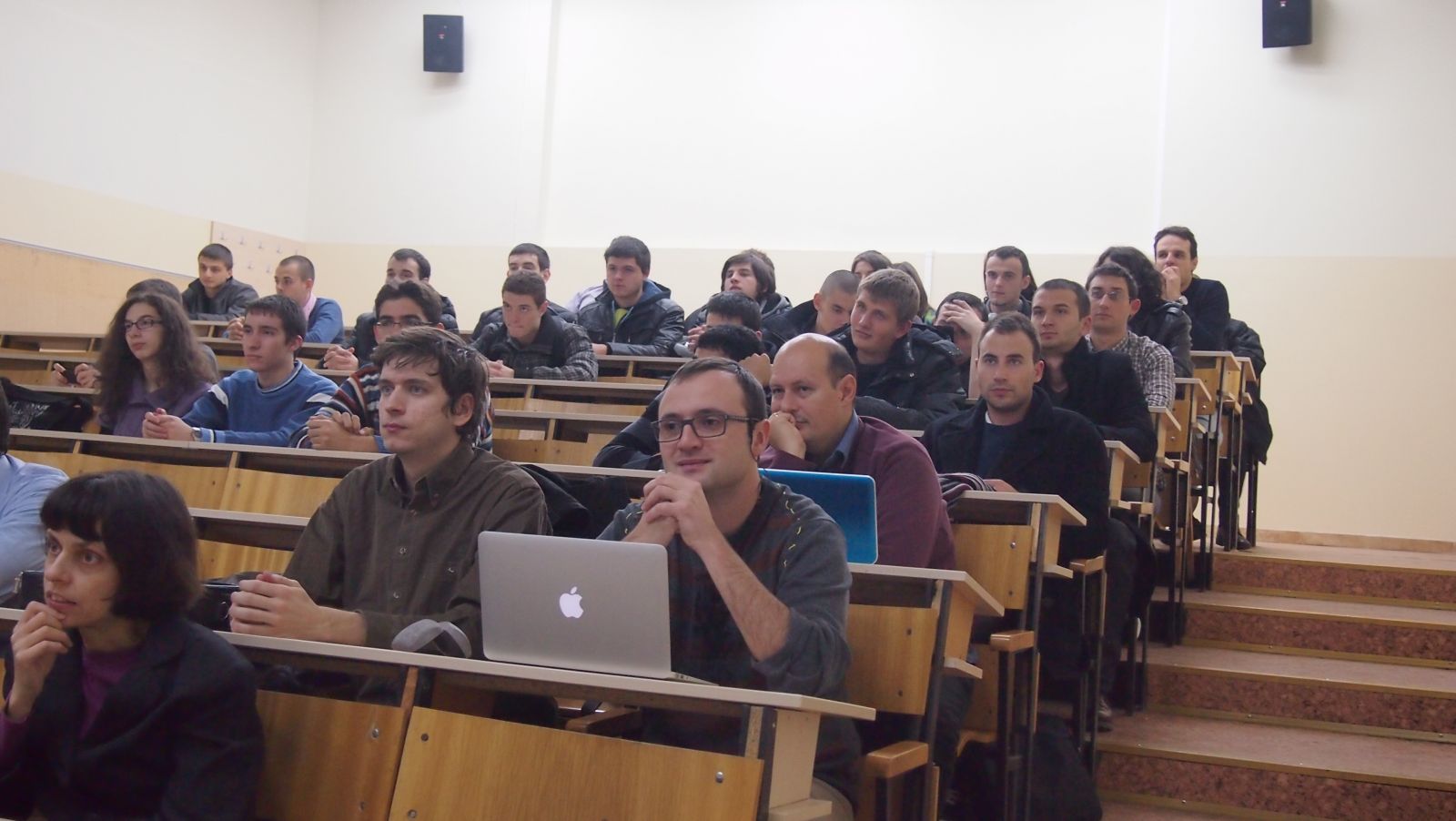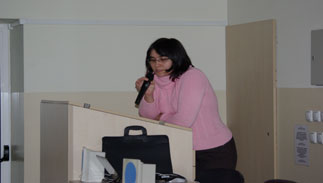 |
 |
 |
 |
CONFERENCE THEME: Open Learning and Teaching in Educational Communities
---------------
The European Conference on Technology Enhanced Learning (EC-TEL) is a unique opportunity for researchers, practitioners, and policy makers to address current challenges and advances in the field. Through EC-TEL, established and emerging researchers as well as practitioners, entrepreneurs, and technology developers explore new collaborations, strengthen networks, and complement their core expertise.
Educational arrangements in our modern society are increasingly characterized by openness in terms of participation, of institutionalisation as well as of tools, devices and resources used. We see shifts between formal, non-formal and informal learning. Learners come together in different social settings and communities (such as in groups in schools, teams in a company, or in informal communities of learners). They share and co-create educational resources and interact with an ever increasing number of open educational resources. Learning communities differ in dimension from local ones, through distributed groups up to global communities (as witnessed by the emerging MOOCs paradigm). The learners use multiple computational tools and devices, often at the same time (e.g. tablets and smartphones for individual learning, interactive tables and electronic whiteboards for collaboration, or mobile technologies for taking learning outside the classroom). Access to the open educational arrangements takes place in a mobile ubiquitous fashion.
There is a pressing need to understand how learning in such open educational communities happens and how learning and teaching technology can support in this context. To address these challenges the theme of EC-TEL 2014 is "Open Learning and Teaching in Educational Communities".
EC-TEL 2014 is collocated with the 14th International Conference on Knowledge Management and Knowledge Computing (I-KNOW 2014). The focus of I-KNOW is on knowledge management and knowledge computing. I-KNOW will consider technologies and methods which are of high relevance to support smart learning.
Graz - the second largest city in Austria with 260.000 inhabitants - offers ideal conditions for academic conferences in beautiful countryside. Guests are always enthusiastic about the picturesque Old Town, the attractive cultural program, the quality and diversity of the cuisine and the excellent infrastructure of the conference venues. EC-TEL 2014 will take place at stadthalle|graz which is Austria's largest and most modern convention center. It was designed by the internationally renown architect Klaus Kada.
CONFERENCE TOPICS
---------------
From both research and innovative practice perspectives the following topics of interest to the conference include, but are not limited to:
Technological underpinning
• Large-scale sharing and interoperability
• Personalization, user modelling and adaptation
• Data mining and information retrieval
• Learning analytics
• Context-aware systems
• Recommender systems for TEL
• Adapted learning flow, content and monitoring process
• Serious games and 3D virtual worlds
• Augmented reality
• Social computing
• Social media
• Semantic Web
• Natural language processing and latent semantic analysis
• Mobile technologies (Tablets & smartphones)
• Network infrastructures and architectures for TEL
• Sensors and sensor networks
• Roomware, ambient displays and wearable devices
• Guidance for tutors
• Cloud Computing in TEL
• eLearning specifications and standards
• Interoperability of devices, tools and architectures
Pedagogical underpinning
• Problem- and project-based learning / Inquiry based learning
• Computer-supported collaborative learning
• Collaborative knowledge building
• Game-based and simulation-based learning
• Story-telling and reflection-based learning
• Learning design and design approaches
• Communities of learners and communities of practice
• Teaching techniques and strategies for online learning
• Learner motivation and engagement
• Evaluation methods for TEL
Individual, social & organizational learning processes
• Cognitive mechanisms in knowledge acquisition and construction
• Self-regulated and self-directed learning
• Reflective learning
• Social processes in teams and communities
• Social awareness
• Trust and reputation in TEL
• Knowledge management and organizational learning
Learning communities and contexts
• Schools and universitues of the future
• Applications of TEL in various domains
• Formal education: initial (K-12, higher education), post-initial (continuing education)
• Workplace learning in small, medium and large companies, networked enterprise settings as well as public and third sector organisations
• Distance and online learning
• Lifelong learning
• Vocational training
• Informal learning
• Non-formal learning
• Ubiquitous learning
• Seamless learning
Open Learning Arrangements
• Massive Open Online Courses (MOOC)
• Open educational resources (OER)
• Learning Networks
• Teacher Networks
• Bring your own Device (BYOD)
• Orchestration of learning activities
• Learning ecologies, learning ecosystems, fitness and evolvability of learning environments
• Business models for TEL
TEL in developing countries and for users with special needs
• ICT Inclusion for learning
• Digital divide and learning
• Generation divide and learning
• Education policies
• Rural learning
• Accessible learning for all
• Visual, hearing and physical impairments
• Psycho-pedagogic support for users
• Standards about accessibility and learning
IMPORTANT DATES
---------------
Papers, Short Papers, Posters & Demonstrations:
• 24 March 2014 Mandatory submissionof an abstract
• 2 April 2014 Submission of full version
• 4 June 2014 Notification of acceptance
• 29 June 2014 Camera-ready versions
Workshop Proposals:
• 01 April 2014 Submission of workshop proposal
• 30 April 2014 Workshop notification
• 16, 17 September 2014 Workshops
Project Meetings
• 20 June 2014 Room reservation for project meetings
• 16, 17 September 2014 Project meetings
Conference:
• 16-17 September 2014 - Doctoral consortium
• 17-19 September 2014 - Main conference
SUBMISSION FORMATS
---------------
Submissions will be handled through EasyChair (https://www.easychair.org/conferences/?conf=ectel2014). All papers will be reviewed through a non-blind review process. Accepted papers will be published in the conference proceedings. "As every year, we will publish proceedings within Springer “Lecture Notes in Computer Science” (LNCS) Series which is ranked in the ISI Web of Knowledge (confirmation pending). The use of supplied template is mandatory: http://www.springer.com/computer/lncs?SGWID=0-164-7-72376-0
- Full Papers: max. 14 pages, published in proceedings
- Short Papers: max. 6 pages, published in proceeding
- Demonstration Papers: max. 4 pages, published in proceedings
- Poster Papers: max. 4 pages, 2 page summary published in proceedings
- Workshop proposals: max. 4 pages, not published in proceedings.
Best papers will be invited to submit extended versions to IEEE Transactions on Learning Technologies.
DEMONSTRATIONS
---------------
The EC-TEL Demonstration session is your chance to fully engage EC-TEL attendees at a personal level by letting them see, touch, squeeze, or hear your visions for the future of TEL, or demonstrate highly interactive ‘TEL in Action’ (e.g. through videos, implemented tools, or real-time learning experiences). We expect that your Demonstration will be a reliably running prototype of your vision that is ready to be tried out, questioned and interacted with.
You need to submit a concise description of your prototype, clearly showing how your technological innovation realises a clear learning innovation. This needs to be in a paper that is a maximum 4 pages long that will be published in the EC-TEL 2014 proceedings if accepted.
At the conference, all accepted demonstrations will be invited to participate in the EC-TEL 2014 Demo-Shoutout session. The participants of the EC-TEL Demo-Shoutout session will vote for the best EC-TEL prototype in this session and the winner will be awarded.
In particular, we encourage Demonstration submissions that complement an EC-TEL Paper submission, so that attendees can get a direct experience of your work in addition to the scientific presentation.
POSTERS
---------------
Posters report on significant work in progress. We are planning a poster session in which you can present your work and elicit feedback from EC-TEL participants. Please submit a paper up to a maximum of 4 pages long describing your work and the results that you plan to achieve until September 2014. A 2-page summary of this will then be published within the EC-TEL proceedings.
WORKSHOPS
---------------
EC-TEL 2014 offers the opportunity to host several workshops. Parties interested to organize a workshop are asked to submit a proposal of maximum 4 pages long outlining the theme of the workshop, workshop format, expected participants and domains addressed, dissemination activities, workshop organizing committee, plans for publishing workshop papers, and organizational requirements. Proposals should be submitted via the EasyChair system of EC-TEL.
Workshop organizers are encouraged to propose innovative and interactive formats, which will be given priority in the selection process.
As this year’s EC-TEL is co-located with the i-Know, we particularly welcome workshops that act as bridge between these communities.
The workshop selection will be handled competitively: proposals will be ranked according to their fit with EC-TEL’s topics, innovativeness, extent of interaction, overall quality, and comprehensiveness of planning.
Identification of workshop participants, solicitation of workshop contributions and publication of workshop outcomes will be handled by the workshop organizers themselves. In publishing the workshop contributions, workshop organizers are encouraged to target high-quality publication outlets (international impact-rated journals, including special issues in these).
At the conference, each accepted workshop is expected to produce a document (for example, a flipchart/poster or a PowerPoint slidepack) synthesising the key outcomes of the workshop and summarising agreed follow-on activities. Workshop organizers will be expected to deliver a short (2 min) presentation of these key outcomes at the EC-TEL 2014 main conference days. By this we intend to carry the focussed discussions that have been going on within the workshops into the wider community of the EC-TEL.
PROJECT MEETINGS
---------------
In addition to the regular sessions and workshops, EC-TEL offers a unique opportunity for European Projects in TEL to hold face-to-face meetings. Please contact the local organization chair at your earliest convenience to book meeting rooms.
DOCTORAL CONSORTIUM
---------------
The EC-TEL Doctoral Consortium brings together Ph.D. students working on topics related to Technology Enhanced Learning. The doctoral consortium will offer Ph.D. students the opportunity to present, discuss, and receive feedback on their research in an interdisciplinary and international atmosphere. Prominent professors and researchers in the field of Technology Enhanced Learning will provide feedback to the selected papers and participate actively and contribute to the discussions. The Doctoral Consortium will take place immediately before the EC-TEL 2014 conference.
The intention of this doctoral consortium is to support and inspire Ph.D. students during their ongoing research efforts. Therefore, it is necessary that authors will have neither achieved their Ph.D. degree nor officially submitted their thesis before the doctoral consortium (September 2014). To enforce this rule we require authors to disclose their expected graduation date and their advisor's name when submitting.
Information about
• Doctoral Consortium Eligibility,
• Application Process, Submission and Review
• Dates can be found at the Doctoral Consortium section.
CONFERENCE ORGANISATION
---------------
General Chair:
- Tobias Ley, Tallinn University, Estonia
Programme Chairs:
- Sara de Freitas, Curtin University, Australia
- Christoph Rensing, Technische Universität Darmstadt, Germany
Workshop Chair:
- Viktoria Pammer, Graz University of Technology, Austria
Poster and Demonstration Chair:
- Pedro J. Muñoz Merino, Universidad Carlos III de Madrid, Spain
Doctoral Consortium Chairs:
- Katherine Maillet, Mines-Télécom, Télécom Ecole de Management, France
- Vanessa Camilleri, University of Malta, Malta
Dissemination Chair:
- Hendrik Drachsler, Welten Institute, Open University of the Netherlands
Local Organization Chair:
- Stefanie Lindstaedt, Know Center Graz, Austria
 | Проект BG051PO001-3.3.06-0052 „Формиране на нова генерация от изследователи в областта на математиката, информатиката и компютърните науки чрез подкрепа на творческия и иновативен потенциал на докторанти, постдокторанти и млади учени във ФМИ на СУ”
|  |